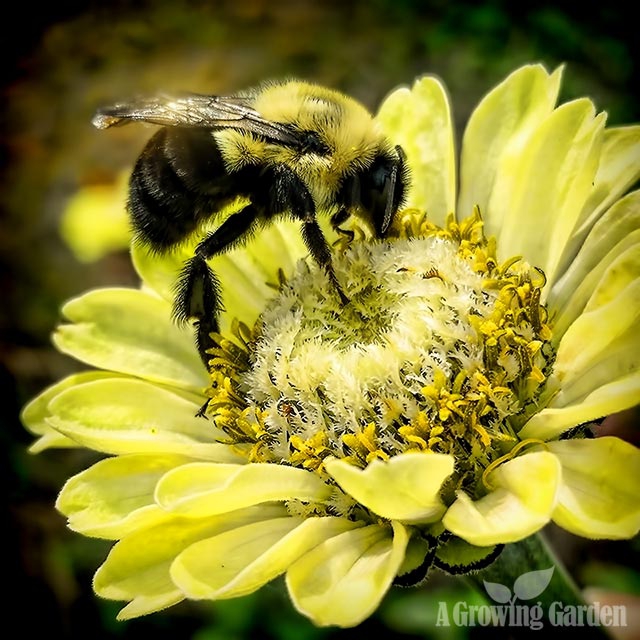
It's been getting a bit colder here every day, but it's still pretty much in the mid-high 60's or low 70's during most days and getting in the low 50's at night. Although things are definitely slowing down in the garden, I still have a lot of flowers blooming -- mostly annuals like zinnias, cosmos, marigolds, but also some perennials like lavender and perennial sunflowers.
And there is still quite a bit of insect activity in the garden too. Just this morning while I was walking Renard the Dog, I noticed this (bumble?) bee on one of my Lime Zinnias and snapped this picture. It was a pretty chilly morning and got me thinking about winter and where bumblebees go after things get cold here. Do you know?
Honeybees
We've been thinking about getting some honeybees here, so I've been reading a lot about them lately and their life cycles. Honeybees overwinter in their hives as a colony. The honeybees form a "cluster" (basically a big, condensed ball of bees) around the queen and the eggs/babies to keep them warm. Then, as the temperature drops, the bees start to shiver. That shivering raises the body temperature of the bees and keeps the cluster warm enough to get through the cold winter. Cool, huh?
But what about bumblebees?
Bumblebees live differently from honeybees and they overwinter differently too. Basically, in the fall new bumblebee queens who had hatched earlier in the summer & mated in late summer/early fall, burrow into nests in the ground and hibernate for the winter. When those new queens emerge in the spring, they lay eggs and start new colonies of bumblebees. The older queens and male bumblebees don't live through the winter and only the new hibernating queens make it through to the spring to start the cycle over again. So sad!





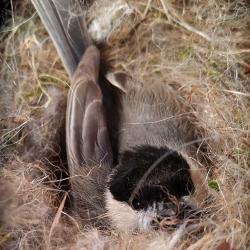
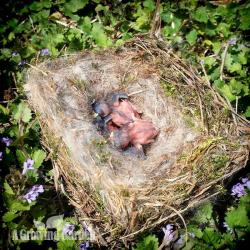
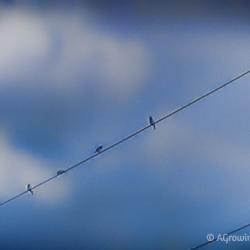
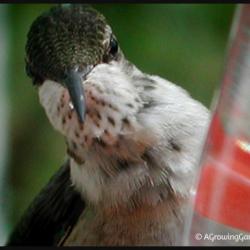



Join the Conversation!